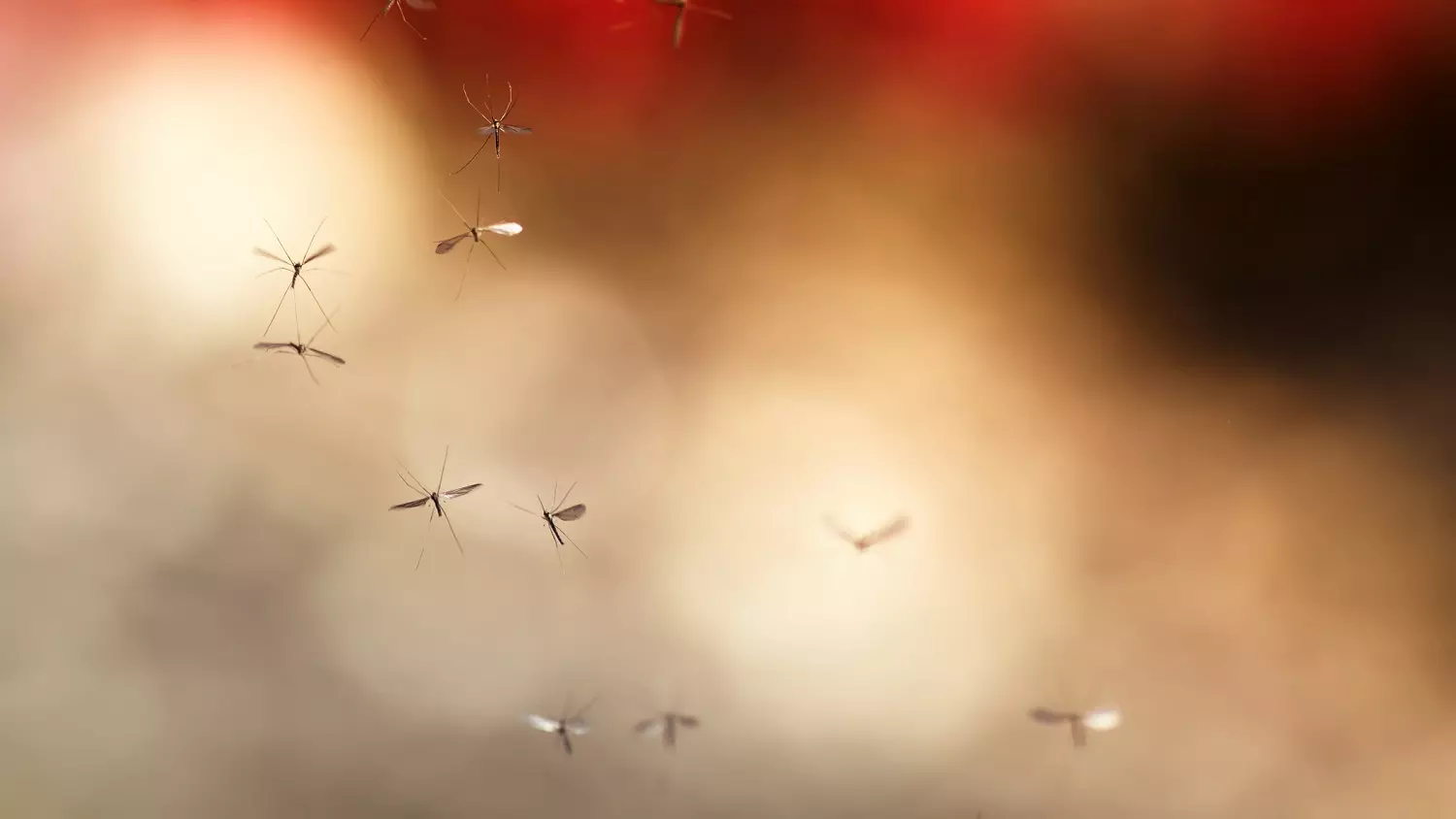[Originally published as the first part of Let’s Squash Natural Selection]
To an atheist “Natural Selection” takes the place of the all-powerful God.
Natural selection is a vital (perhaps the most vital) premise upon which evolution depends. In their own words:
Natural Selection: applies to all organisms but insects provide perhaps the best model. Lecture Slide at UC Davis
The change in coloration of peppered moths, to use a phrase from Dr. Jonathan Wells, is an “icon of evolution.” That “icon” is just a stick figure with no substance. For comprehensive information about peppered moths see my article “Moth Marathon.”
The observable phenomenon of insect development of resistance to various chemicals was probably the first argument I heard supporting evolutionism. It was presented by an individual in an audience of intellectuals at the University of Charleston in one of the first engagements of my local creation group (the Kanawha Creation Science Group).
The “intellectuals” were mostly evolutionists who thought the creationists would be humiliated if given an opportunity to present our case. The fellow who spouted this attempt to rebut us “ignorant” creationists probably had read something like this:
Insects become resistant to pesticides very quickly, sometime in one generation. If an insect is resistant to the chemical, most of the offspring will also be resistant. Considering that insect generations can be a matter of weeks, insects in an area can become immune to a chemical within months. ~Natural Selection Examples Your Dictionary.com
It doesn’t take much to respond to this “major proof” of evolution. We start out with a particular insect (a grain beetle for example) and you end up with a grain beetle that is immune to the effects of a particular insecticide. Let me say this s-l-o-w-l-y for the benefit of evolutionists. It…was…and…is…a…grain… beetle.
It works like this
A few of the original beetles have a gene that is resistant to the chemical. The next population of insects will have those individuals and some will be more resistant than others. The third population will have those that are the most resistant and so on.
Evolutionists preach the doctrine of “natural selection” in all kinds of scenarios. Following are two examples.
By moving some insects from their customary host plant and protecting others from predators, Nosil found that colour pattern alone could initiate speciation, while natural selection on other traits (like the ability to detoxify host-plant chemicals) were needed to complete the creation of a new species. ~U British Columbia: Stick Insects and Natural Selection: Zoology Post-Doc Helps Prove Darwin Right
This one is describing an insect like a mosquito’s ability to collect a meal before being swatted. They either have to somehow slow down the natural alert system of the host, or be fast enough to be finished before the host has time to react:
In mosquitoes, and other insects that depend on a blood meal for egg production, only those that complete the meal within the safety period can lay a full complement of eggs; the others will either be killed or injured by the host before egg development begins, or they will be disturbed before completion of the meal and so lay fewer eggs. Thus, fast feeders and those producing a delay in the onset of irritation will tend to lay more eggs, and these two properties will be maintained by natural selection, with the onset of irritation in the host acting as the main selection force. ~Proceedings of the Royal Society Biological Sciences
Poor old Charles Darwin used insects as a major explanation (using his immense imagination) of natural selection in the evolutionist bible, Origin of Species. In Chapter IV Darwin wrote,
Thus I can understand how a flower and a bee might slowly become, either simultaneously or one after the other, modified and adapted to each other in the most perfect manner, by the continued preservation of all the individuals which presented slight deviations of structure mutually favourable to each other…Natural selection acts only by the preservation and accumulation of small inherited modifications, each profitable to the preserved being; and as modern geology has almost banished such views as the excavation of a great valley by a single diluvial wave, so will natural selection banish the belief of the continued creation of new organic beings, or of any great and sudden modification in their structure.
Actually, the evidence supports a “diluvial wave” (i.e. Noachian flood) and there is no evidence for evolution—even by chanting the magic words “natural selection” three times fast.
In Chapter VII, Darwin is at his best at spinning yarns, but makes some telling admissions which I have placed in bold print in the following quotation.
I have now explained how, I believe, the wonderful fact of two distinctly defined castes of sterile workers existing in the same nest, both widely different from each other and from their parents, has originated. We can see how useful their production may have been to a social community of ants, on the same principle that the division of labour is useful to civilised man. Ants, however, work by inherited instincts and by inherited organs or tools, while man works by acquired knowledge and manufactured instruments. But I must confess, that, with all my faith in natural selection, I should never have anticipated that this principle could have been efficient in so high a degree, had not the case of these neuter insects led me to this conclusion. I have, therefore, discussed this case, at some little but wholly insufficient length, in order to show the power of natural selection, and likewise because this is by far the most serious special difficulty which my theory has encountered. [Emphasis added]
Darwin is dead and the concept of “natural selection” needs to die a natural death.
Atheists Need Natural Selection
In his article “Going to Extremes: The Design Question” a leading apologist for evolutionism, Michael Ruse, attempted to debunk Paley’s argument for design. Ruse says,
So much for tradition. Darwin exploded a bomb right under it. Not so much thanks to evolution per se but rather because of the mechanism of natural selection… Selection shows why it is that you have teleology* in the living world without the need for recourse to supernatural origins.
*Ruse defines teleology as the “distinctive aspect of organisms—that they invite a form of forward-looking thought.”
Then he quotes Richard Dawkins, arguably the most prolific evolutionist propagandist, from The Blind Watchmaker:
Natural selection, the blind, unconscious, automatic process which Darwin discovered, and which we now know is the explanation for the existence and apparently purposeful form of all life, has no purpose in mind. It has no mind and no mind’s eye. It does not plan for the future. It has no vision, no foresight, no sight at all. If it can be said to play the role of watchmaker in nature, it is the blind watchmaker.
After sharing Dawkins’ thoughts about adaptation (“the appearance of design”), Ruse states unequivocally,
You cannot get adaptive complexity without natural selection.
Ruse offers support for a theistic evolutionist (TE) position by claiming,
If you do not want to believe in the existence of God, then natural selection shows that you are not compelled to do so on grounds of design.
Then he explains how Dawkins would counter a TE:
Natural selection is a mechanism dependent on the struggle for existence — and this means pain and despair. How then could it be that the Christian God — all loving and all powerful — makes the world in a way that necessarily causes evil?
That opens up the oft used atheist argument of “The Problem of Evil” to which Ruse uses Dawkins’ conclusion (based upon natural selection) that,
The universe we observe has precisely the properties we should expect if there is, at bottom, no design, no purpose, no evil and no good, nothing but blind, pitiless indifference.
He says Dawkins has argued,
that adaptation is the mark of the living and that the only way to bring life about was through natural selection. In other words, since God cannot do the impossible, the only way in which God could have created the living world—including us humans—was through natural selection, that is to say through a process causing pain and misery.
In his concluding remarks Ruse clearly equates Natural Selection and Darwinism.
Natural selection is pertinent, showing that (if anyone ever would claim this) you simply cannot say that such teleology in itself necessitates a belief in the Christian God (or a god with some of the Christian attributes). However, it does not make belief in such a god impossible, and there are Christian traditions (the Augustinian particularly) which might welcome the evolutionary approach.
Ruse’s thesis is wishy-washy, but that is not the subject of my argument.








The process of “selection” is carried out by an intelligent being. Yet we’re to believe that natural selection is a random, unguided process? Consider the total contradiction of these two dictionary definitions:
SELECTION
1. the action or fact of carefully choosing someone or something as being the best or most suitable.
“such men decided the selection of candidates”
2. BIOLOGY – a process in which environmental or genetic influences determine which types of organism thrive better than others, regarded as a factor in evolution.
Hi, Mr. Wise. I hope you won”t mind if I beg to differ on some of your points.
I actually wouldn’t call this a contradiction. These are two different definitions: one refers to the human act of selecting, the other to a real natural process that has been labeled (however suitably) “selection.” While this is certainly not literally the same as human selection, there are fundamental similarities in the results (e.g., some entities are retained while others are discarded, which is the most basic attribute of selection).
Furthermore, I would point out that, in the creationist view, there is an intelligence behind all “natural” processes: God. Nothing that happens is really random or unguided, since God is sovereignly controlling every event. Thus, even though it would be inconsistent for an atheist to treat natural selection as intelligent, it is not wrong for a creationist to acknowledge God’s providence behind it.
I know there’s some disagreement among creationists on this issue, and I’m certainly not advocating every claim evolutionists have made about natural selection. However, we need to be careful about writing off every aspect of it simply because evolutionists make use of it.
I apologize for such a long comment. For a more in-depth treatment, I would recommend Nathaniel Jeanson’s excellent article: https://answersingenesis.org/natural-selection/does-natural-selection-exist/.
Thanks Caleb. Basically I wasn’t disputing natural selection, but pointing out that atheist evolutionists deny the existence of an intelligent Creator, yet use terms all the time that imply intelligence.
Sure, I get that. However, there is a lot of misunderstanding among creationists about what natural selection is and is not, so I wanted to make sure that was cleared up.
“(E)nvironmental or genetic influences determine” is not an “an intelligent being.”
Darwin and Wallace needed it to explain away God’s designed abilities for creatures to change within limits.
If creationists use the term, they are propping up atheistic “natural selection.”
Caleb: Excellent response.
Thanks! I liked the article too, though I personally disagree with some aspects of it.
Please go to my website and email me with your disagreements.
I do not wnt to debate, but I am open to learning.